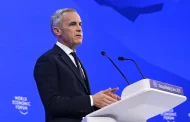A clearer standpoint might emerge from the meeting of the Southern African Development Community, (SADC), taking place today but the succession plan which actually explains why the Zimbabwean Defence Forces are not calling their intervention a coup appear to have run into a hitch. Detained (former) president, Robert Mugabe is understood to have refused to make a broadcast announcing his resignation. It is further understood that Mugabe has refused to yield to persuasions which later became demands to address the nation. This has, in turn, stalled the plan on ‘peaceful’ transfer power that might lead the military with no choice but to officially pronounce a coup de tat, declare a state of emergency and perhaps impose martial law.
The fear is that the mood across the continent might not tolerate full blown take-over of power by the military in a crucial country such as Zimbabwe even as many people are fed up with the continuing leadership of Mugabe after 37 years in power. The African Union and the Southern African Development Community, (SADC) are feared to be most likely hostile to a full blown military rule within the region and their standpoint will be relied upon by the rest of the world in responding to such a situation although Zimbabwe’s peculiar colonial history makes it a matter of interest to ex-colonial powers sent packing by Mugabe in the wake of the land reform rift with the UK.
Some sources are, therefore, saying that a Mexican standoff is now in full swing as the Generals do not want to announce a coup but would prefer where Mugabe resigned and bowed out “gracefully”. The wait and see game is on while the chance to resign and handover power without causing a constitutional crisis is still being explored and negotiated. The worry in many quarters is how the delay could complicate matters as the military’s General Chiwenga is basically the Head of State. The national broadcaster – the Zimbabwe Broadcasting Corporation – remains under the control of the about 50 commandos who took it over by midnight last Tuesday.
Does the answer lie in investing Phelekezela Mphoko, the only surviving Vice-President as at the time of the ‘coup’ with presidential powers till the party gets its acts together? This is crossing the minds of many. Mphoko is said to combine many things – combatant during the liberation war, diplomat, businessman, peace activist and philanthropist.
Meanwhile, it is now known that a civil society coalition in Zimbabwe anticipated this stalemate and wrote to the Angolan president, the incumbent overseer of SADC’s Organ on Politics, Defence and Security Cooperation. The coalition said it was unnerved by what it called the current tell-tale signs of impending violent conflict which is potentially going to be the worst the country has ever experienced. “We therefore appeal to your office to not only closely monitor the situation in Zimbabwe but also to raise a red flag for the Organ to urgently intervene in Zimbabwe through preventive diplomacy and any other appropriate means as provided for in terms of Article 11 (3) (a) of the Protocol on Politics, Defence and Security Co-operation”. Its fears has come to pass.
It’s a complicated stalemate with no easy answer but the powerful players involved in resolving the stalemate are expected to find a middle ground quickly and disallow the situation from degenerating into a mindless power struggle and mass suffering. Africa has had enough of that!




























